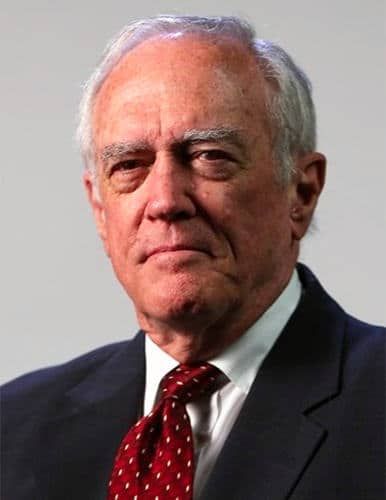Estate Planning Lawyer in Boca Raton, FL
Secure Your Assets with Expert Estate Planning in Boca Raton, FL
Navigating the complexities of estate planning can be daunting, but it doesn't have to be. For residents of Boca Raton, FL, The Walser Law Firm is a trusted partner in estate planning, guiding you through the process of securing your assets with clarity and precision.
Your dedicated estate planning attorney specializes in Wills, Trusts, and estate planning; they are also well-versed in probate and trust administration. This specialization allows us to address issues regarding estate planning, probate administration, trustee, and guardianship situations with a depth of knowledge and understanding built from years of practical experience.
At The Walser Law Firm, we provide not just services but solutions tailored to your specific needs. We ensure that your assets are well-protected and that your estate plan aligns with your goals and wishes.
Don't leave your legacy to
chance. Reach out to an estate planning lawyer from our law firm in Boca Raton, FL, and let us help you secure your future with confidence.
We provide practical solutions to estate planning and asset protection concerns to accomplish our client’s wishes, including maintaining management and control of their estate while at the same time avoiding probate, protecting family members, ensuring their financial privacy, obtaining peace of mind, and avoiding unnecessary taxes. Our Boca Raton, FL, estate planning attorneys understand that every estate, regardless of size, is important.
A revocable living trust is usually recommended as a cornerstone of our clients’ estate plans. A fully funded revocable living trust offers complete control to clients during their lifetime, provides for them and their loved ones in the event of their incapacity, and on death, allows them to pass their assets to their loved ones without the costs, delays, and publicity associated with probate.
With an advanced Master of Laws in Estate Planning Degree (LL.M.), Mr. Thomas C. Walser, Esq. handles all aspects of estate planning, including:
- Creating Wills and Trusts
- Wealth Preservation Planning
- Planning for Incapacity and Disability
- Minimizing or Eliminating Federal and State Tax Liability
- Long-term Estate Planning
- Special Needs Planning
Working with Your Boca Raton-Based Estate Planning Attorney:
Client Timeline
Our process usually looks something similar to this:
- Assess Objectives and
- Obtain Information
- Telephone Conference
- Discuss Drafts with the Client
- Receive Estate
- Planning Portfolio
- Free Initial
- Consultation
- Draft Estate Planning
- Documents
- Signing
- Ceremony
Estate Planning Considerations
- Selecting Personal Representatives / Executors
- Selecting Trustees
- Non-probate Assets vs. Probate Assets
- Distributions to Surviving Spouse
- Distributions to Other Family Members
- Widow/Widower Estate Planning
- Distributions to Special Needs Family Members
- Powers of Appointment
- Contingent Beneficiary (ies)
- Specific Bequest of Tangible Property
- Charitable Bequests
- Guardians
- Beneficiary Designations
- Life Insurance
- Beneficiary Designations
- Retirement Plans
- Durable Power of Attorney
- Health Care Surrogate
- Living Will
- HIPAA Release & Authorization
Selecting Executors
The executor (sometimes called a Personal Representative) administers the probate estate, including filing all probate documents and any estate and fiduciary income tax returns. It is much more than an honorary position and includes numerous responsibilities. Your executor can be an individual, a corporate fiduciary, or a combination. If an individual is named, your will should provide for one or more alternate executors if the first appointed executor cannot serve for any reason.
Selecting Trustees
Each trust created under your estate plan will require that a trustee be named. Your estate plan might have several trusts, such as:
- Trusts that are funded during your lifetime;
- Trusts established at the death of the first spouse for the benefit of the family in general;
- Marital trusts established at the death of the first spouse for the sole benefit of the surviving spouse; and,
- Trusts established at the death of the second spouse for the benefit of children and grandchildren.
- As with the executor, the trustee is responsible for carrying out the terms of the trust and filing trust income tax returns. It is much more than an honorary position and includes numerous responsibilities.
Non-Probate Assets Vs. Probate Assets
Your will governs only “probate” assets, which are assets owned in your sole individual name, with no designated beneficiary. You might have other assets that will pass at your death by other means. Some ways by which non-probate assets can pass at death include:
- If assets are held in trust, the trust’s terms will govern their disposition;
- The appropriate beneficiary designation will govern retirement plans and insurance policies and,
- Real estate can be co-owned as joint tenants with rights of survivorship.
Distribution to Surviving Spouse

You and your spouse should discuss how you want assets to pass to the surviving spouse at the death of the first-to-die. This issue can arise in two very different contexts. First, if your estate plan creates a Credit Shelter Trust (sometimes called a Bypass Trust or a Family Trust), then you may want the surviving spouse to be a permissible beneficiary of that trust. However, the surviving spouse cannot have too much benefit/control, which would negate the estate tax planning for such a trust.
Second, assets other than those funding the family trust usually pass to the surviving spouse, either outright or in a marital trust. A marital trust can give added control, professional management of assets, and protection from creditors while preserving certain estate tax savings. If a marital trust is used, consider how you want distributions to be made for the benefit of the surviving spouse. Many trusts for the surviving spouse allow liberal distributions for medical support, living expenses, and general welfare. To qualify for the estate, marital deduction trusts for a surviving spouse generally must at least distribute the trust income to the surviving spouse at least annually.
Distribution to Other Family Members

Consider how you wish your assets to be distributed to other family members, such as children, step-children, and parents. For example, if a trust is used for children, consider the desired timing of distributions. It may be best to allow wealth to be used by the family as needed while also protecting and preserving this wealth for several generations by minimizing taxes and protecting the assets from family creditors (which can include a future divorcing spouse). For these reasons, our Boca Raton, FL, estate planning attorneys feel that it might be advisable to have trusts continue until a beneficiary reaches a certain age or possibly even for the beneficiary’s lifetime.
If you want assets to stay in trust, under what circumstances should periodic distributions be made to your descendants? Many trusts for descendants contain restrictions, limiting distributions for medical support, education, and living expenses to maintain a beneficiary’s accustomed lifestyle. Some also contain provisions to allow descendants to enter a profession, start a business, purchase a home, and/or help toward a wedding. You can also empower the trustee to make discretionary distributions, allowing more flexibility in addressing future circumstances. However, granting more discretion to the trustee must be balanced against your desire to maintain some control over when distributions are to be made.
Widow/Widower Estate Planning
If you have lost a spouse, your world has changed dramatically. With all the changes in your life, it is important to remember that you need to re-examine and update your estate plan.
Consider the following steps:
- Take inventory of your assets. You should inventory your assets and determine how they are owned. You may want to change certain assets and how they are owned, such as those owned jointly with your spouse. You may need to change the title to be in your name only or in the name of your trust. If you inherited assets from your spouse in trust, you would want to protect them from creditors by keeping them in trust. You should consult with your estate planning attorney on changes in tax basis for assets you held with your spouse.
- Update your estate plan. Many times, the death of a spouse results in dramatic changes in your finances, which may require your estate plan to be changed. You should also review to determine whether you named your spouse as trustee, executor, or power of attorney. If so, you should appoint a new person. If you remarry, you should update your estate plan to reflect how you want your new spouse and children to inherit from you.
- Protect your wealth. Even though you may have inherited a certain amount of wealth from your spouse, it is crucial to protect your finances. It is typically not a good idea to lend money to new love interests or friends because many scam artists target lonely individuals. You and your spouse worked hard to accumulate your savings, so safeguard your future by conferring with a seasoned Boca Raton estate planning attorney who will help ensure your best interests are protected. If you consider remarriage, only do so with a premarital agreement in place. This can avoid a lot of grief for you and your family.


Distribution to Special Needs Family Members
The parents of a special needs child are faced with five unique estate planning challenges:
- Providing for all of their loved ones without jeopardizing the special needs child’s eligibility for means-tested government benefits such as Supplemental Security Income (SSI) and Medicaid;
- Designing an estate plan that supplements the special needs child’s means-tested government benefits and enhances the quality of the child’s life;
- Treating the other children equitably while providing for the special needs child;
- Ensuring sufficient funds are available at a parent’s death to care for the child; and,
- Providing for the proper supervision, management, and distribution of inheritance for the special needs child through a third-party created and funded special needs trust (SNT).
Of these five unique estate planning challenges, items four and five are the most difficult to implement. This is especially true if most of the parents’ estate is composed of retirement benefits, no trustee in the parents’ special needs child’s vicinity is experienced in administering special needs trusts, or if an experienced trustee is available. Still, its minimum fee is too high relative to the proposed size of the Special Needs Trust.
At a minimum, the parents should have the following five estate planning documents prepared:
- Last Will and Testament;
- General Durable Power of Attorney for financial affairs that permits the agent to make discretionary nonsupport distributions to or for the benefit of the child and to establish a third-party created and funded Special Needs Trust for the benefit of the child;
- Durable Medical Power of Attorney;
- Revocable Living Trust containing language permitting the trustee to make discretionary nonsupport distributions to or for the child’s benefit; and,
- Third-party created and funded Special Needs Trust.
Durable Power of Attorney
A durable power of attorney is a legal document that empowers your designee to handle your affairs if you become incapacitated. You and your spouse should each appoint a primary and alternate individual (often called either an “agent” or an “attorney-in-fact”) who will be responsible for making decisions for you and executing necessary documents in the event you or your spouse becomes unable to do so.
Often, spouses name each other as their agent and often name an adult child as the alternate. However, there is no requirement that you name your spouse. If someone else, such as an adult child, would be in a better position to handle your affairs, which is fine too.
You are also not required to name only one attorney-in-fact for your affairs. If there are particular assets (e.g., closely held stock) that a specific person would more appropriately handle, you can have more than one power of attorney to accomplish that by appointing what is referred to as a Limited Power of Attorney.
In Florida, as of October 1, 2011, it is recommended that the existing power of attorneys be updated to utilize a new and improved form. The updated form requires the designator to designate which powers will be granted to the designee. Older versions of a power of attorney are still legally valid, but most banks and other financial institutions will not accept the older versions.
Health Care Surrogate, A Living Will
You and your spouse should each appoint a primary and alternate individual responsible for making health care decisions if you or your spouse cannot do so. A healthcare surrogate authorizes your designee to make these decisions for you. This power would not permit your designee to override your own decisions; it would merely permit decision-making where you have not previously made your wishes clear. A living will appoint an agent and directs that medical intervention, except to keep you comfortable, be withdrawn if your death is imminent.
Often, spouses name each other as their healthcare surrogate and often name an adult child as the alternate.
HIPAA Release & Authorization
HIPAA is the Health Insurance Portability and Accountability Act. This Federal law requires health providers to take specific steps to protect the privacy and security of patient health information. Florida hospitals believe your health information is personal and confidential. The privacy part of the law went into effect on April 14, 2003, and requires Florida residents to sign a HIPAA disclaimer form authorizing their loved ones or family members’ access to any medical information regarding the designator.
Our Team
Walser Law Firm is ready to work on your behalf, from wills and trusts to probate and trust administration to Medicaid planning.
Our experienced team of attorneys is here to help you navigate your estate plan and the Florida probate process, with a wide range of expertise and specialty service provisions that cover all of you and your family’s legal needs as you age.
Send Us a Message
WE PROMISE TIMELY SERVICES AND QUICK RESPONSES
Don’t Delay Your Estate Planning
Walser Law Firm helps you create an effective long-term care plan. Call our Boca Raton office at 561.750.1040 or email us to schedule an appointment with our estate and care planning lawyers.



